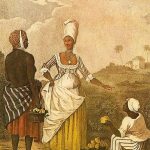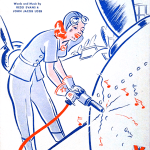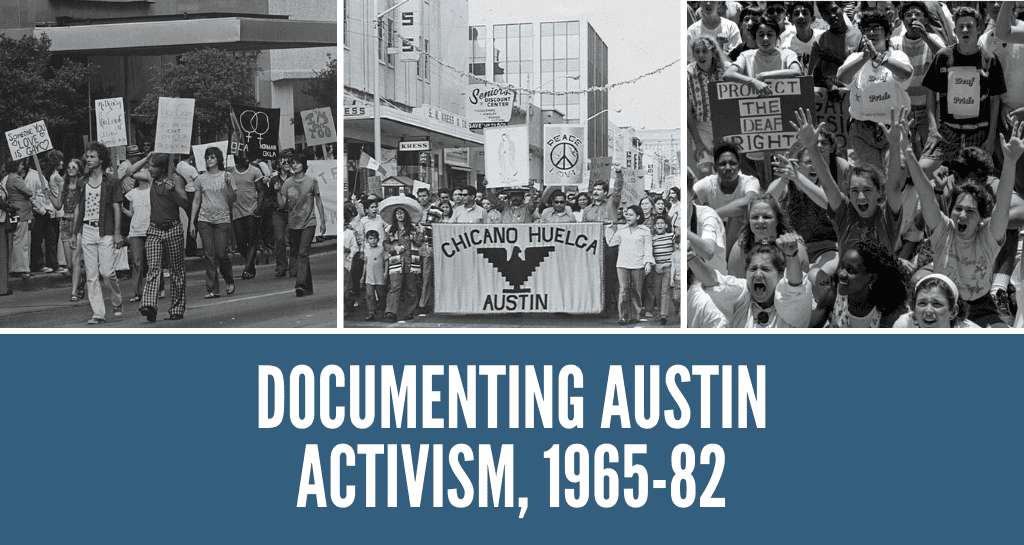
In Spring 2021, Dr Laurie Green taught HIS 378W, Capstone In History. This exciting and highly successful course allows students to become engaged and active researchers. The course description is as follows:
A half century removed from the social movements of the 1960s and 1970s, many participants and observers of intersecting social justice movements today—whether about racial violence, women’s empowerment, immigrant rights, medical inequality, labor conditions, or climate change—are looking back to that history for clues about today. Historians have much to contribute, not by looking for one-to-one connections in which “history repeats itself” or prognosticating about the future, but by critically analyzing the roots of today’s challenges in the specific historical context of that time period. This capstone course offers students the opportunity to be the historians by undertaking original research projects about those turbulent decades. Projects focus on campus and community social justice movements in Austin itself, most of which have received scant scholarly discussion despite their significance to larger historical narratives about racial justice, women’s liberation, Vietnam, labor and poverty, and popular and political culture.
The class culminated in a series of far-ranging student presentations that were attended by key figures in campus and community social justice movements. Below are representative quotes from each of the presentations along with links to the full videos.
Gay and Lesbian Liberation: Community Building and Community Action in Austin, Texas
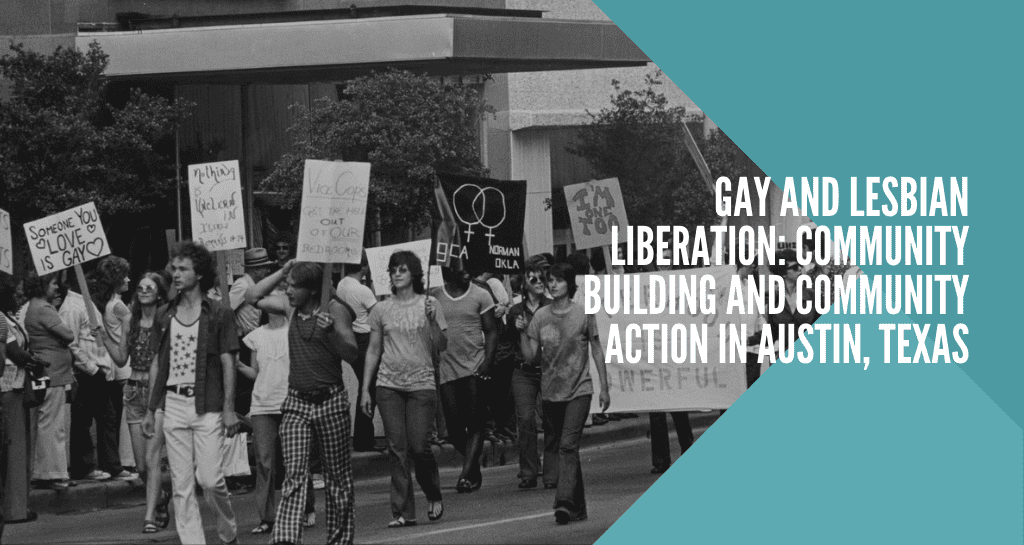
by Jared Stilwell, Alicia Ramos, Zara Dehri, and Elise Randall
“Community activism goes far beyond the single group that fights for one’s rights but builds a close community to return to in order to survive in an often unaccepting and potentially dangerous straight world. Such a community was the basis of any long lasting gay and lesbian group as support and recovery were vital aspects of the Austin movement and were deliberately fostered and valued. Often in these Austin gay and lesbian activist moments, the idea of community was just as significant to build and maintain as the activism itself.”
To watch the full presentation, visit here.
“Self-Determination and a Tranquil Future for All Peoples”: Chicano Political Activism in Austin
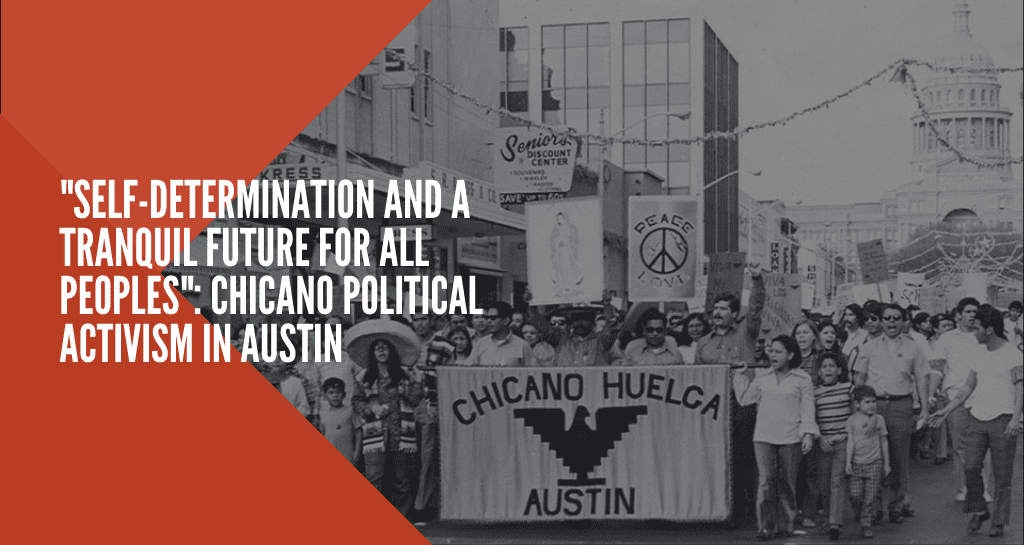
by Adely Zavala, Suzanne Adams, and Ethan Walje
“I think when trying to view the legacy of La Raza Unida in Austin, you shouldn’t frame it as . . . necessarily electoral success. I think the real legacy is what they did for the political consciousness of Latino people in the city. When you look at the state elections, the numbers that they achieved and where they polled, and how voting percentages went up, I think that Raza Unida really manifested the political hopes of the Chicana/o movement, and it really illustrated how wide reaching the Chicana/o movement had become and how diverse its practices had become. There was this legitimate political institution that had evolved from it, and I think it’s the hope for those political goals and the raising of that political consciousness in the Latino community in Austin that’s really the true legacy of the Raza Unida party.”
To watch the full presentation, visit here.
Please note that in the rich discussion with Chicana activists at our public event, we learned that Para La Gente was not an official La Raza Unida Party paper, nor specifically a campus newspaper, but rather a more general Austin-oriented newspaper produced and read by community members.
A Tumultuous Relationship: Activism and the Legal System
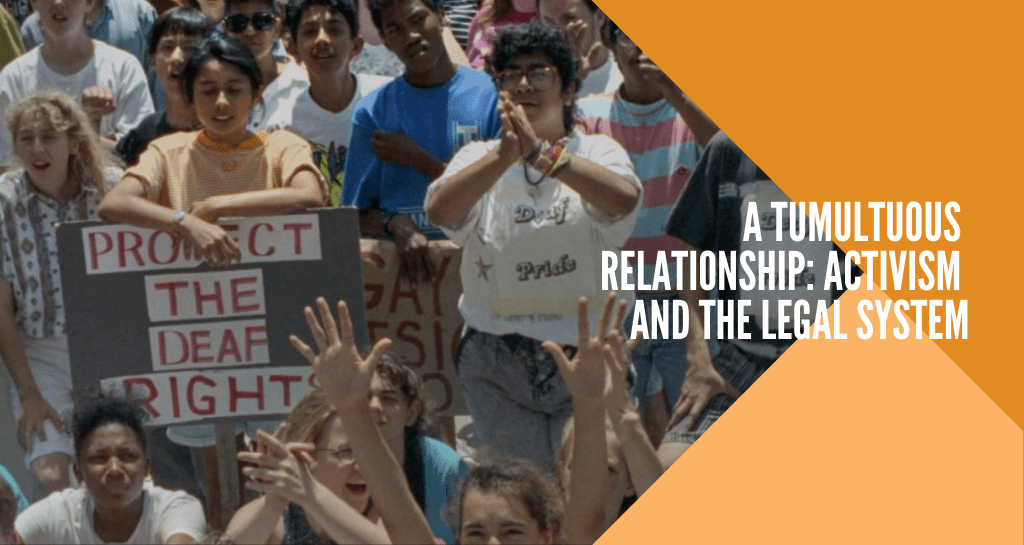
by Ciera Farmer, Erica Koteras, and Samuel Garrett
“What we found in looking at our individual projects together was that each social justice activist movement had their own individual relationships with the legal system. These centers that we talked about are not monoliths within their movement, they don’t represent the entire movement, but we definitely felt that each perspective within each movement had different relationships with the legal system, but they all struggled significantly with the way that laws were enforced or changed or not changed. We felt like this was a really important topic to highlight the importance of activism and its role in the legal system and how those two things affect each other and the relationship that they have, whether it be good or bad.”
To watch the full presentation, visit here.
Image Credits: 1) The University of North Texas Libraries 2) Benson Latin American Collection 3) The Austin History Center
